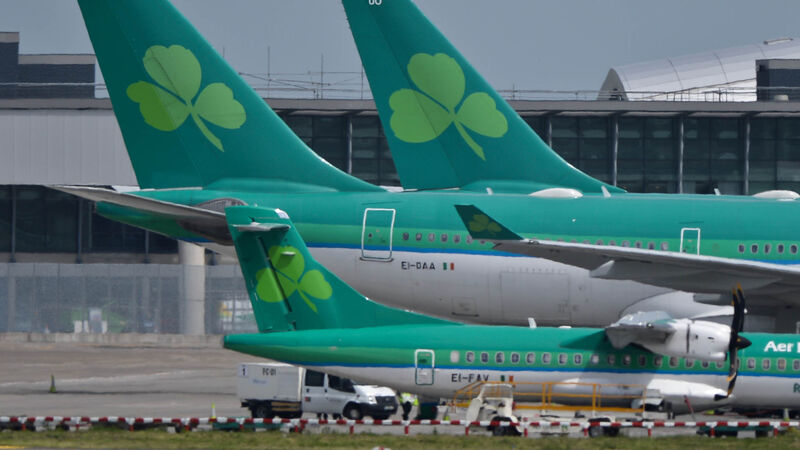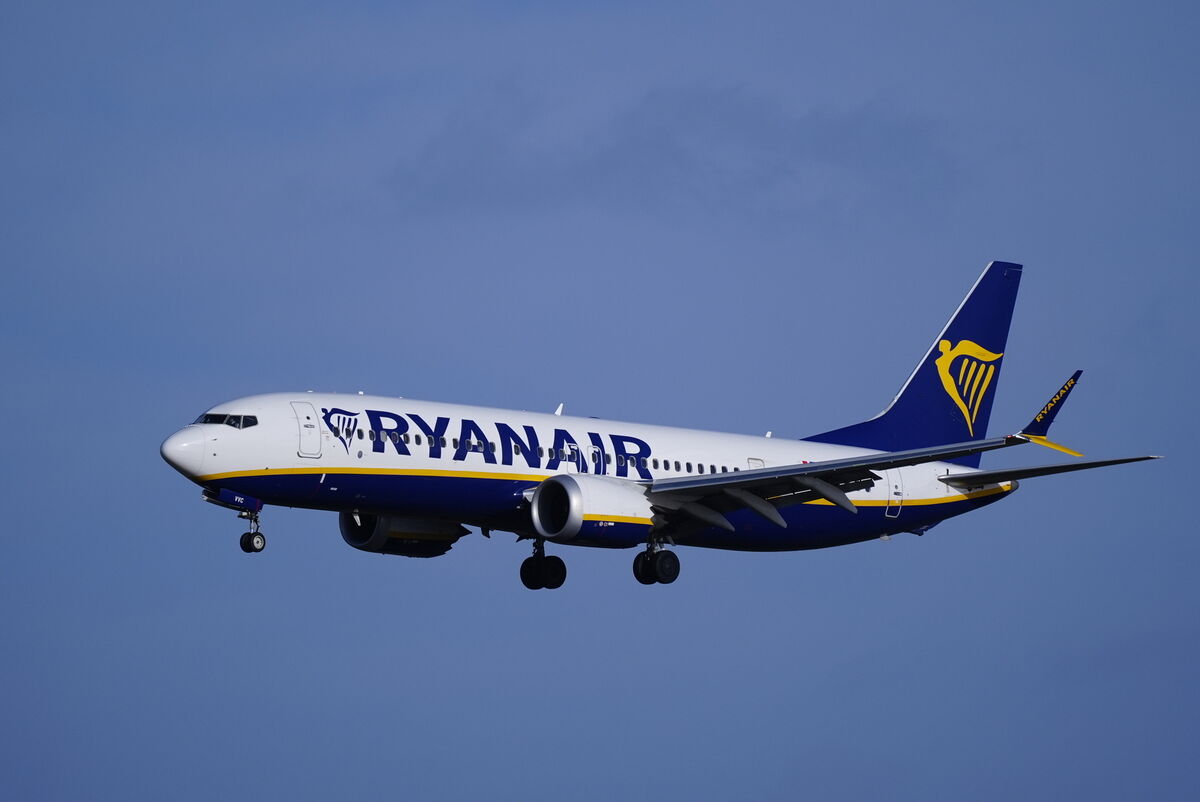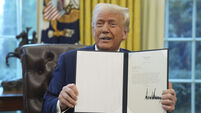John Whelan: Airlines feeling the pain of Trump policies

US routes account for around 50% of profits for Lufthansa, Air France-KLM, and Aer Lingus owner IAG. Picture: Artur Widak/PA
The airline industry is feeling the pain of the Trump administration's policies and erratic pronouncements, which have produced negative sentiments toward the US among international travellers.
American Airlines, Delta, Southwest, and JetBlue all reported falling foreign visitor numbers, as well as domestic travel declining in the first three months of the year. In regulatory filings, they are forecasting further declines across the rest of the year.
Their projections for the full year come despite the airlines dropping their airfare prices by 5.3% compared to the same time in 2024. That is after declining 4% in February.
Tourism Economics, a firm that tracks the hospitality industry, recently changed its forecast for foreign visitors to the US to a 9.4% decline for 2025, after projecting a 9% increase back in December, reflecting tariffs, inflation, and shaky consumer demand, which has forced their re-evaluation of expectations in 2025.
Falling visitor numbers reflect an increase in hostility by many foreigners to the US, especially among students planning to study there, as well as the fear of harassment by immigration officers, according to US Centre for Economic and Policy Research senior economist Dean Baker.
The travel and tourism industry, which accounts for about 3% of the US GDP, has long been one of the economy’s most robust trade sectors, posting a trade surplus in travel every year this century, except this year, with the drop in foreign visitors to the US pushing the value of travel services down by a 7.8% annual rate in the first quarter.

Clearly, some of the backlash has come from Canada, where citizens have recoiled from Trump’s talk of making it the 51st state. In March, the number of Canadians taking road trips across the US border was 32% lower than March 2024, and there was a 13.5% decline in air travellers from Canada, according to Statistics Canada. Advance bookings for flights from the US to Canada for the April to September period were off more than 70% from the prior year.
Some of Europe’s largest carriers, Air France-KLM and Lufthansa, have both warned of a dip in transatlantic bookings from Europe, particularly for the early summer period. As carriers release their first-quarter earnings and outlooks, signs of slowdown are prompting questions about whether this marks a short-term hesitation or a longer-term shift in travel patterns.
Tourism International, which attributed much of its lowered forecast for foreign travel to the US and the global fallout from Trump’s “America First” rhetoric, noted that the March data reflect foreign visitor patterns before the April 2 ‘Liberation Day’ tariff announcement, which may draw further backlash.
US routes account for around 50% of profits for Lufthansa, Air France-KLM, and IAG — the parent company of Aer Lingus and British Airways.
A prolonged slowdown in demand could tighten margins across the year, but some relief may come from the falling price of jet fuel, which is now at its lowest in three years, according to IATA. Hence, both Air France-KLM and Lufthansa have maintained a positive outlook for the broader summer travel season, reflecting the advantage of falling jet fuel, which accounts for one-third of airline operating costs.
Ryanair, which does not rely on travel to the US, said its passenger numbers for April rose by 6% in the month, bringing the airline’s annual traffic growth to 9%, reaching 201.3m passengers.
Ryanair chief executive Michael O’Leary, in a recent interview, stated that Ryanair has taken advantage of the fall in oil prices to hedge a “significant” amount of its future fuel requirements and is yet to see any impact on bookings from US tariff turmoil.
With the price of jet fuel falling by a further 10% in April, O’Leary said the low-cost airline had this month “very significantly extended” its fuel hedges for its next two financial years at “dramatically lower oil prices.’’ He added that the airline had not seen a change to booking patterns, even as the spectre of tariffs sparked fears of a global economic slowdown. “We don’t see anything this summer in Europe,” he said.
Despite the uncertainty across much of the industry, IATA director general Willie Walsh downplayed the long-term impact, emphasising that the trade tensions have created uncertainty but not a major crisis for the industry. He also noted that the new US administration will likely encourage consolidation, which he thinks would be a “net positive” for airlines.













